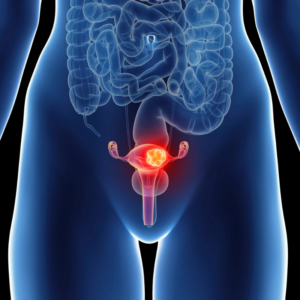As women approach menopause, a lot of changes happen in their bodies. One area that many women may not be aware of is the connection between menopause and gut health. The gut plays a crucial role in overall health and well-being, and menopause can have a significant impact on gut health. In this blog post, we’ll explore the connection between menopause and gut health and provide tips on how to support your gut health during this time.
Menopause is a natural process that occurs when a woman’s reproductive system gradually slows down and stops producing eggs. This typically happens between the ages of 45 and 55, but can occur earlier or later. As the body adjusts to the changes in hormone levels during menopause, many women experience symptoms such as hot flashes, night sweats, mood changes, and changes in digestion.
Research has shown that menopause can have a significant impact on gut health. One study found that menopausal women are more likely to experience gastrointestinal symptoms such as bloating, constipation, and diarrhea. Another study found that menopause can lead to changes in the gut microbiome, the collection of bacteria and other microorganisms that live in the gut and play a crucial role in digestion, immunity, and overall health.
So, why does this life change affect gut health? One reason is that the hormones that regulate the menstrual cycle, such as estrogen and progesterone, also play a role in gut health. As hormone levels fluctuate during menopause, this can affect the gut microbiome and lead to digestive symptoms.
Another reason is that menopause is often accompanied by changes in lifestyle factors such as diet, exercise, and stress levels. These changes can also impact gut health. For example, menopausal women may be more likely to experience stress, which can lead to digestive symptoms such as bloating and abdominal pain.
So, what can you do to support your gut health during menopause?
Here are some tips:
Eat a healthy, balanced diet: This can help support a healthy gut microbiome. Aim to include plenty of fiber-rich fruits and vegetables, whole grains, and lean protein sources in your diet. Avoid processed and sugary foods, which can disrupt the gut microbiome.
Stay hydrated: Drinking plenty of water can help keep your digestive system functioning properly and prevent constipation.
Exercise regularly: Regular exercise can help reduce stress levels and support healthy digestion. Aim for at least 30 minutes of moderate exercise, such as brisk walking or cycling, most days of the week.
Manage stress: Stress can have a significant impact on gut health. Consider incorporating stress-reducing practices into your daily routine, such as meditation, deep breathing exercises, or yoga.
Consider probiotics: Probiotics are live bacteria and yeasts that are good for your gut health. They can be found in fermented foods such as yogurt, kefir, and sauerkraut, or taken as supplements.
During menopause, gut health can be significantly impacted, but there are ways to promote gut health. Eating a balanced diet, staying hydrated, exercising, managing stress, and using probiotics can maintain a healthy gut microbiome and reduce digestive issues. By prioritizing gut health, women can support their overall health and well-being throughout menopause and beyond.







